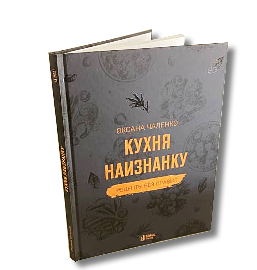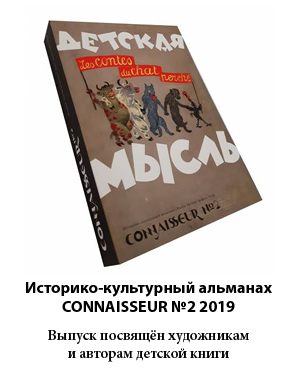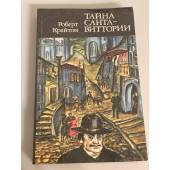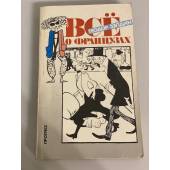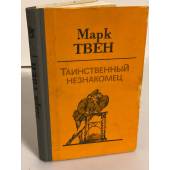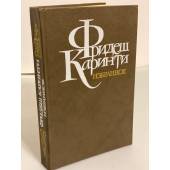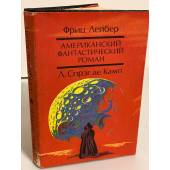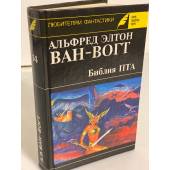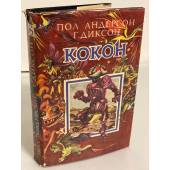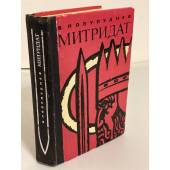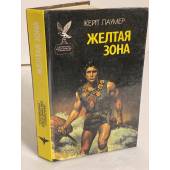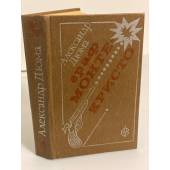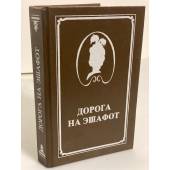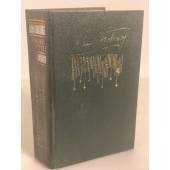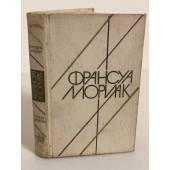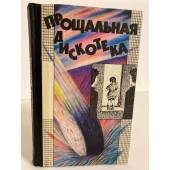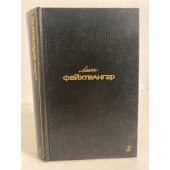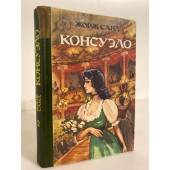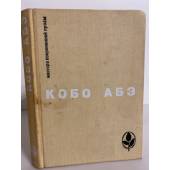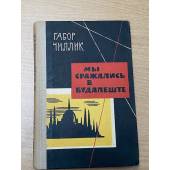
Cart
0
Product
Products
(empty)
No products
Free shipping!
Shipping
0,00 €
Packing fee
0,00 €
Total
Product successfully added to your shopping cart
Quantity
There are %d items in your cart. There is 1 item in your cart.

Categories
- Albums (2085)
- Antique (before 1850) old books (before 1941) (584)
- Art and culture (5355)
- Audiobooks, compact discs (CD) (121)
- Autographed books (250)
- Board games (19)
- Books for school (4701)
-
Books in foreign languages
(8509)
- Books in Altai (4)
- Books in Azerbaijani (47)
- Books in Belarusian (46)
- Books in Bulgarian (2)
- Books in Dutch (2)
- Books in English (6681)
- Books in Estonian (10)
- Books in Finnish (7)
- Books in French (43)
- Books in Georgian (37)
- Books in Greek (2)
- Books in Hungarian (6)
- Books in Italian (12)
- Books in Japanese (7)
- Books in Karelian (3)
- Books in Kyrgyz language (6)
- Books in Latvian (46)
- Books in Lithuanian (7)
- Books in Norwegian (4)
- Books in Polish (14)
- Books in Portuguese (2)
- Books in Slovak (2)
- Books in Spanish (17)
- Books in Swedish (3)
- Books in Tajik (34)
- Books in the Adyghe language (3)
- Books in the Balkar language (8)
- Books in the Bashkir language (73)
- Books in the Buryat language (5)
- Books in the Kalmyk language (8)
- Books in the Karachai language (1)
- Books in the Komi language (5)
- Books in the languages of the peoples of the Caucasus (7)
- Books in the Mari language (17)
- Books in the Mokshan language (1)
- Books in the Mordovian language (3)
- Books in the Nogai language (1)
- Books in the Tatar language (101)
- Books in the Udmurt language (10)
- Books in the Yakut (Sakha) language (27)
- Books in the Yarzyan language (2)
- Books in Ukrainian (973)
- Books in Uzbek (9)
- Chuvash language books (29)
- Kazakh language books (8)
- Business. Economy (1624)
- Calendars (41)
-
Children's Literature
(10356)
- Books for parents (356)
-
Children's creativity and leisure
(905)
- Children's games. Experiments and experiments (15)
- Coloring pages (12)
- Crafts, cooking for children (6)
- Drawing for children (11)
- Make with your own hands (29)
- Modeling, application (7)
- Organization of children's parties (2)
- Origami, paper craft (5)
- Puzzles, crosswords for kids (7)
- Questionnaires, diaries, albums (1)
-
Educational and educational literature for children
(1727)
- Attention. Imagination. Memory (27)
- Basic security (4)
- Creative development (46)
- Foreign languages (102)
- General development. Manuals, reference books (83)
- General preparation for school (45)
- Introduction to the outside world (69)
- Logic. Thinking (31)
- Math and counting (43)
- Teaching reading and writing (91)
-
Educational literature for children
(770)
- Biographies for children (37)
- Books for boys (21)
- Books for girls (19)
- Culture, art, religion (48)
- Encyclopedias, reference books and other educational literature for children (182)
- History for children (86)
- Nature and the environment (242)
- Psychology. Etiquette (12)
- Science, technology, transport (54)
-
Fiction for children
(4334)
- Books for kids (111)
- Books on cartoons and films. Comics (82)
- Detectives and adventures for children (194)
- Foreign prose for children (307)
- Myths. Legends. Historical prose for children (69)
- Poetry for children (147)
- Russian prose for children (414)
- Science Fiction, Fantasy and Horror for Kids (118)
- Tales (504)
- Tales and stories about animals (144)
- Soviet children's books (902)
- Toy books (40)
- Collected works. Multivolume editions (3685)
- collection sets (53)
- Comics (53)
- Cookery (1379)
- Dictionaries. Phrasebooks (1324)
- Electronic books (10)
- Encyclopedia (1022)
- Engravings (7)
- Feng Shui (112)
- Fiction (84463)
- German and Germany (35792)
- gramophone records, vinyl (131)
- Guides (2057)
- Healthy lifestyle. Healthy eating. Fitness (1806)
- History (9790)
-
House. Life. Leisure.
(7696)
- Dom. Life (3179)
- Erotic books, books about sex, kamasutra (193)
- Hobby. Leisure (1655)
- Reference Literature (2166)
-
Sport
(959)
- Aerobics. Fitness. Yoga. Dancing (31)
- Board games (158)
- Combat and martial arts (82)
- Extreme sports (12)
- Gymnastics. Light and weightlifting (8)
- Olympic Games (13)
- Other sports (51)
- Physical culture and sport (72)
- Self-defense. Survival (20)
- Sport games (23)
- Tourism (85)
- Water sports (28)
- Winter sports (18)
- Kits (different books) (139)
- Kits (magazines) (60)
-
Magazines and newspapers
(2551)
- Architecture, interior (9)
- Astrology, esotericism (35)
- Bills (233)
- Calendars 2020 (1)
- Calendars 2021 (3)
- Cars, hunting, fishing (15)
- Celebrities, ZhZL (33)
- Children's magazines (12)
- Computer, technology (4)
- Cooking and Recipes (25)
- Crosswords, Scanwords (2)
- Editions with TV program (133)
- Entertainment magazines (7)
- Fashion, style, beauty (17)
- History (111)
- Hobbies, interests (104)
- Home, family, leisure (74)
- House, garden, vegetable garden (34)
- Literature, theatre, music (235)
- Magazines for men (211)
- Magazines for parents (2)
- Magazines for women (108)
- Medicine, health (153)
- Religion (10)
- Russian press abroad (480)
- Science, technology, fantasy (168)
- Sewing, knitting, needlework (8)
- Society, politics (636)
- Special Editions (57)
- Travel, countries (14)
- Maps, atlases (665)
- Military business. Weapons. Special services (4062)
- Miniature books (149)
- Music. Sheet music (1042)
- Postage stamps (92)
- Postcards (191)
- Posters (37)
-
Professional, educational literature
(24682)
-
Applied sciences. Technique
(2522)
- Agriculture. Veterinary medicine (40)
- Architecture (359)
- Chemical industry (104)
- Construction (445)
- Design (136)
- Energy (68)
- Engineering. Instrumentation (184)
- Food industry (19)
- Jewellery (22)
- Life safety (46)
- Light industry (39)
- Metallurgy (28)
- Mining (83)
- Nanotechnologies (5)
- Oil and gas industry (53)
- Other industries (101)
- Polygraphy (8)
- Radio engineering. Electronics. Communication (263)
- Technical Sciences (330)
- Technology of production (100)
- Timber and wood chemical industry (13)
- Transport (183)
-
Computer Literature
(483)
- Administration. Information security (5)
- Computer for … (16)
- Computer networks. Internet (23)
- Databases (8)
- Design systems (CAD/CAM) (1)
- General questions (41)
- Graphics, design, multimedia, games (27)
- Hardware (4)
- Informatics (27)
- MS Office. Microsoft office programs (11)
- Operating systems (12)
- PC work for beginners (18)
- Programming languages and environments (37)
- Humanities (8841)
-
Legal Literature
(1005)
- Civil law (54)
- Civil procedural law. Judiciary (8)
- Comments (12)
- Constitutional law. Administrative law (30)
- Criminal law (40)
- Criminology. Criminalistics (37)
- Customs law (8)
- Financial law (11)
- International law (34)
- Labor law. Social security law (9)
- Land law. Environmental law (3)
- Law enforcement agencies (23)
- Law in general. History and theory of state and law (30)
- Other branches of law (23)
- Regulatory acts. Reference literature (19)
- Right in everyday life (17)
- Textbooks and teaching aids (43)
- Workshops and practical aids (6)
-
Medicine and Health
(2416)
- Applied Medicine (42)
- Clinical Medicine. Internal Medicine (21)
- Cosmetology (20)
- Fundamentals of Medicine. Healthcare System (26)
- General pathology. General therapy (19)
- Narcology (12)
- Nervous system (29)
- Other branches of medicine (89)
- Pediatrics (52)
- Pharmacology. Toxicology (21)
- Popular and alternative medicine (1113)
- Psychiatry. Neuropathology. Sexopathology (71)
- Surgery (18)
- Monographs (1110)
- Natural sciences. Mathematics (2221)
- Social Sciences (5592)
-
Applied sciences. Technique
(2522)
- Religion. Esotericism (6361)
- Russian Abroad (books published abroad) (2599)
- Russian language (775)
- Russian language for children (Textbooks) (155)
- Soviet books until 1992 (12966)
- Yoga Books (158)
- Show All
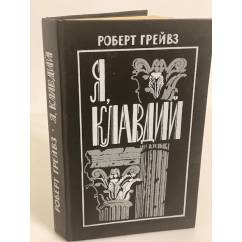
Божественный Клавдий и его жена Мессалина
188279
Adequate Condition
Item 1
0,4 kg
Sale the same product...More info
From the author The word "golden" is used here in the sense of the generally accepted monetary unit and corresponds to the Latin aureus, a coin equal to one hundred sesterces or twenty-five denarii (silver coin); this is approximately the same as the British pound sterling or five US dollars. The Roman mile is thirty paces shorter than the English mile. For convenience, the dates in the margins are given in modern chronology; According to the Greek chronology used by Claudius, the countdown of years begins from the first Olympiad, which took place in 776 BC. e. From the same considerations, geographical names generally accepted now are given; hence France instead of Transalpine Gaul, since France occupies approximately the same territory, and to name such cities as Nimes, Boulogne and Lyon in a modern way - their classical names will not be recognized by the general reader - placing them in Transalpine Gaul, or, as the Greeks called it, Galatia, would be inconsistent on my part. (Greek geographic terms can only be confusing; for example, Germany was called by them "Land of the Celts.") Similarly, the book used the most familiar forms of proper names - "Livy" for Titus Livius, "Cymbeline" for Cunobelinus, "Mark Antony" for Marcus Antonius. Claudius writes in Greek, as befitted a learned historian of the day, which explains the detailed interpretation of Latin jokes and the translation of the passage from Ennius, which he quotes in the original. Some critics, speaking of the book "I, Claudius", which preceded the "Divine Claudius", expressed the opinion that, while working on it, I gathered the information I needed only in the Annals of Tacitus and the Lives of the Twelve Caesars by Suetonius, fusing them together, and everything else is the fruit of my "powerful imagination". It is not so: it was not so then, it is not so now. Among the ancient authors whom I had recourse to in the creation of the "Divine Claudius" are Tacitus, Cassius Dio, Suetonius, Pliny, Varro, Valerius Maximus, Orosius, Frontinus, Strabo, Caesar, Columella, Plutarch, Josephus Flavius, Diodorus Siculus, Photius, Xifilinus, Zonara, Seneca, Petronius, Juvenal, Philo, Celsus, the authors of the Acts of the Apostles, the apocryphal gospels of Nicodemus and St. James, and the letters and speeches of Claudius himself that have survived to this day. There are almost no events in the book that are not supported by historical sources of one kind or another, and, I hope, all of them are plausible enough. Each character has a prototype. The most difficult thing was to write the chapters devoted to the defeat of Caratacus by Claudius - mentions of this by contemporary authors are too scarce. In order to give a sufficiently reliable picture of Druidism - the religion of the ancient Celts - I had to supplement the few information about this cult that came from the ancient world, borrowing from archaeological works, ancient sagas and reports of megalithic culture in the New Hebrides, where dolmens and menhirs are still used. during religious ceremonies. I was especially circumspect when speaking of early Christianity, fearing that I would become the author of yet another malicious fabrication, but I could not ignore the previous ones, especially since Claudius himself was not very disposed towards the new church and received most of the information about Middle Eastern religious affairs from his an old school friend of Herod Agrippa, king of the Jews, who executed St. James and threw St. Peter into prison.
Data sheet
| ISBN | 5-280-03064-3 |
| Publisher | Художественная литература |
| Publication date | 1994 |
| Number of Pages | 521 |
| Bookbinding | Hardcover |
All author\'s books:
Seller Info/Map |
Seller type: Company (business)
Подробнее
baltic books
Reval Real Estate OÜ
Tõru 15
Tallinn, 12011
Estonia
+37255566625

Tõru 15
Tallinn, 12011
Estonia
+37255566625






